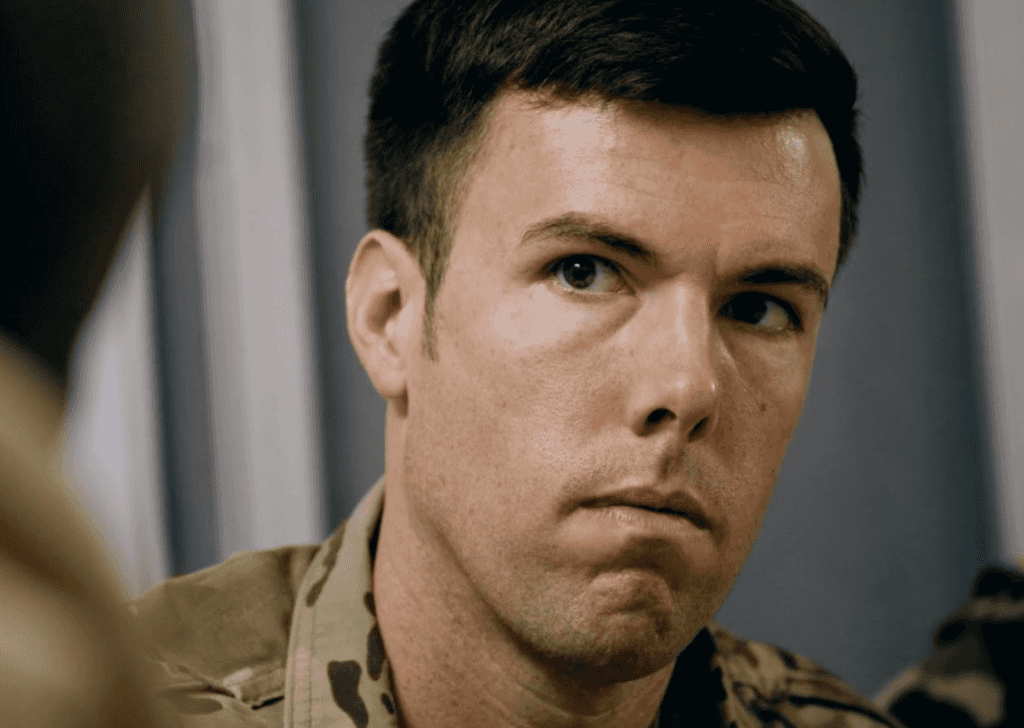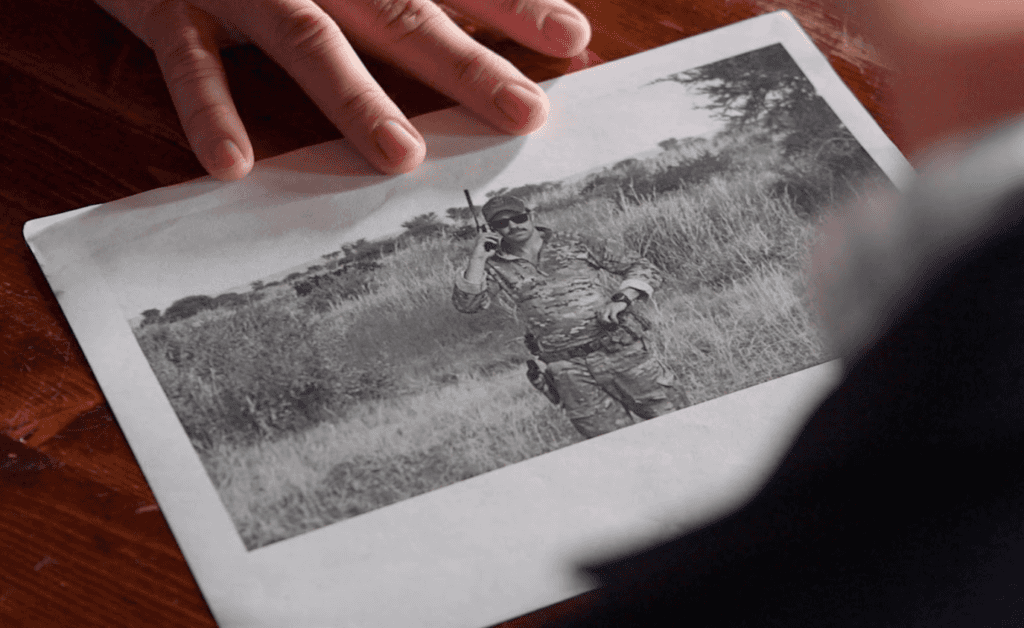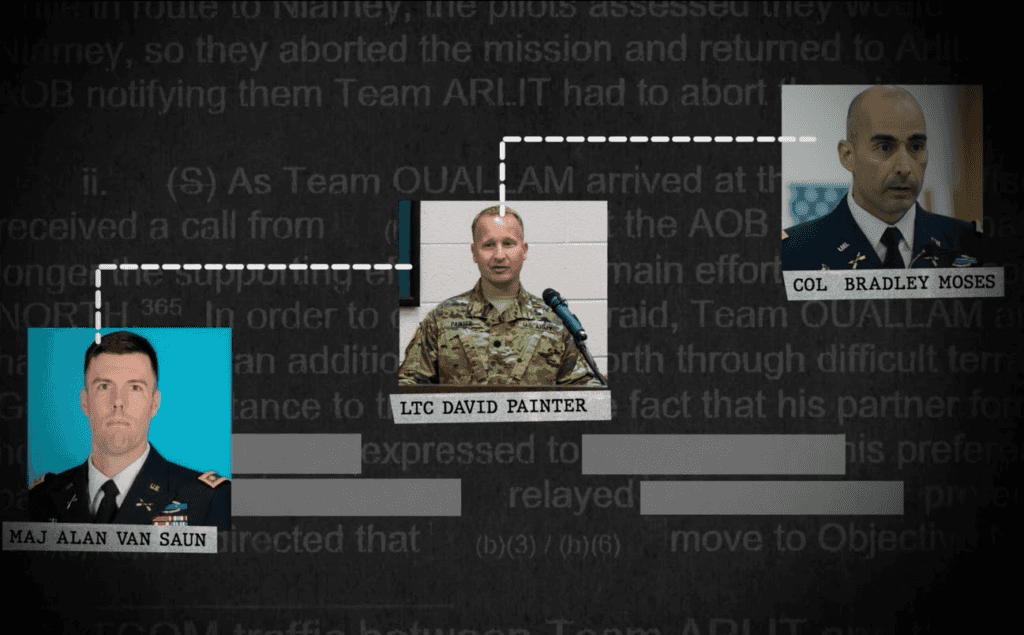On Oct. 4, 2017, a unit of the U.S. Army’s 3rd Special Forces Group, known as Operational Detachment Alpha (ODA) 3212, was ambushed by affiliates of the Islamic State terrorist group (ISIS) in Tongo Tongo, Niger, resulting in the deaths of four U.S. soldiers Staff Sgt. Bryan Black, Sgt. La David Johnson, Staff Sgt. Dustin Wright and Staff Sgt. Jeremiah Johnson. A new documentary “3212 Un-Redacted,” available on Hulu on Thursday exposes the corruption and coverups that tainted the investigation into the truth.
In initial investigative efforts into failures surrounding the operation, investigators characterized the special forces unit as having lacked the necessary training and even suggested the unit went out in a rogue effort to hunt down Doundoun Cheffou, an ISIS-linked militant believed to have been responsible for kidnapping an American in Mali. After the initial investigative conclusions came out, the families of the four soldiers killed that day started to question whether they were getting the full story.
In an interview with American Military News, ABC investigative journalist James Gordon Meek said the initial efforts by U.S. Africa Command (AFRICOM) to investigate ODA 3212’s actions leading up to the 2017 ambush “completely maligned” the team and misstated their mission.
Meek has spent the past three years investigating the 2017 Niger ambush, drawing information from lawmakers, former military officials and the slain soldiers’ family members to piece together the truth about the ambush that remains concealed within a heavily redacted 268-page government report of the attack.
While initial characterizations of the Army unit’s mission showed they had been tasked to advise and assist Nigerien troops on a mission to collect information from the local population, investigators said that the special forces unit instead went on a hunt for Cheffou with the intent to capture or kill him.
Through the course of his investigative efforts, Meek found that the plan for the special forces unit to go on the hunt for Cheffou did not come from the unit leaders on the ground but rather from higher-up military leaders.
As a result of early investigative efforts, Maj. Alan Van Saun — who was not present during the planning and execution of the mission — was one of the unit leaders who was reprimanded and who subsequently left the Army.
“He became scapegoated,” Meek said. “Maj. Van Saun was not even in Africa when the gunfight happened and the ambush in Tongo Tongo occurred.”

Van Saun was not the only unit leader to face punishment. Army Cpt. Mike Perozeni, the officer leading ODA 3212, also received two letters of reprimand.
Contrary to the initial characterization of ODA 3212 as a rogue unit, accounts from those who were present before the ambush said Cpt. Perozeni had pushed back against the order for his unit to take on a more complex mission than the one they originally planned.
“I think that the battalion commander, who was actually not in Niger — he was headquartered in Chad, overruled the captain who led ODA 3212 when he was on the ground, 24 hours into a mission,” Meek said. The battalion commander “overruled [Cpt. Perozeni] as he objected to it multiple times for very good reasons. His team was lightly armed. They had no medevac capability, no back-up, no quick reaction force in case they ran into an ambush.”

The letters of reprimand against Perozeni were eventually withdrawn, “But,” Meek said, “his name was dragged through the mud very publicly.”
The conflicting stories about who really made the flawed decisions that led to the 2017 ambush only added to the grief of family members who lost loved ones that day.
As Ardie Wright, the father of Staff Sgt. Dustin Wright, said in the documentary, “I think that’s probably the biggest injustice, that I walked around pissed off for a year and my anger was directed towards [Perozeni] who was completely innocent of what they told me he did.”
While Perozeni eventually got some official vindication of his actions, in the form of an Army Commendation Medal, Meek said Van Saun’s once-promising military career was cut short without any vindication.
“I’ve talked to a lot of people that worked for Alan Van Saun, who worked with him or who he worked for,” Meek said. “And they all believe he was one of the finest officers in the Army and that his record should be expunged and that his reputation should be restored.”
While Van Saun, Perozeni, and other members of the ODA 3212 were punished, higher-up leaders like Lt. Col. David Painter and Col. Bradley Moses were not reprimanded.

As Terri Criscio, the mother of Dustin Wright, states in the documentary, “If we’re going to have a strong country, we have to have a strong military, and that means when you make a mistake you are accountable.”
Painter was eventually reprimanded during the government’s investigation into the 2017 ambush. Painter and Moses were later recommended for promotions, though the U.S. Senate blocked those promotions from going through.
Before retiring in 2019, AFRICOM commander Gen. Thomas Waldhauser ordered the full 268-page redacted government investigative report on the 2017 ambush to remain secret for 25 years.

Meek said he plans to continue uncovering elements of the 2017 ambush as he learns about them.
“I feel like I did a pretty good job of figuring out what the redacted portions of the report said because people told me and I was able to piece things together,” Meek said. “But yeah, you never know what will come out.”



